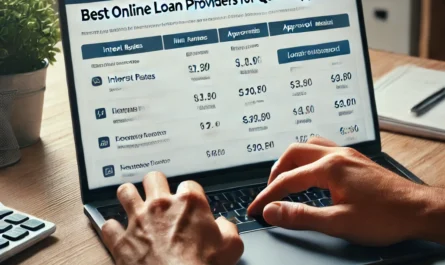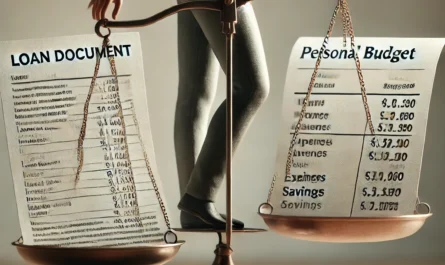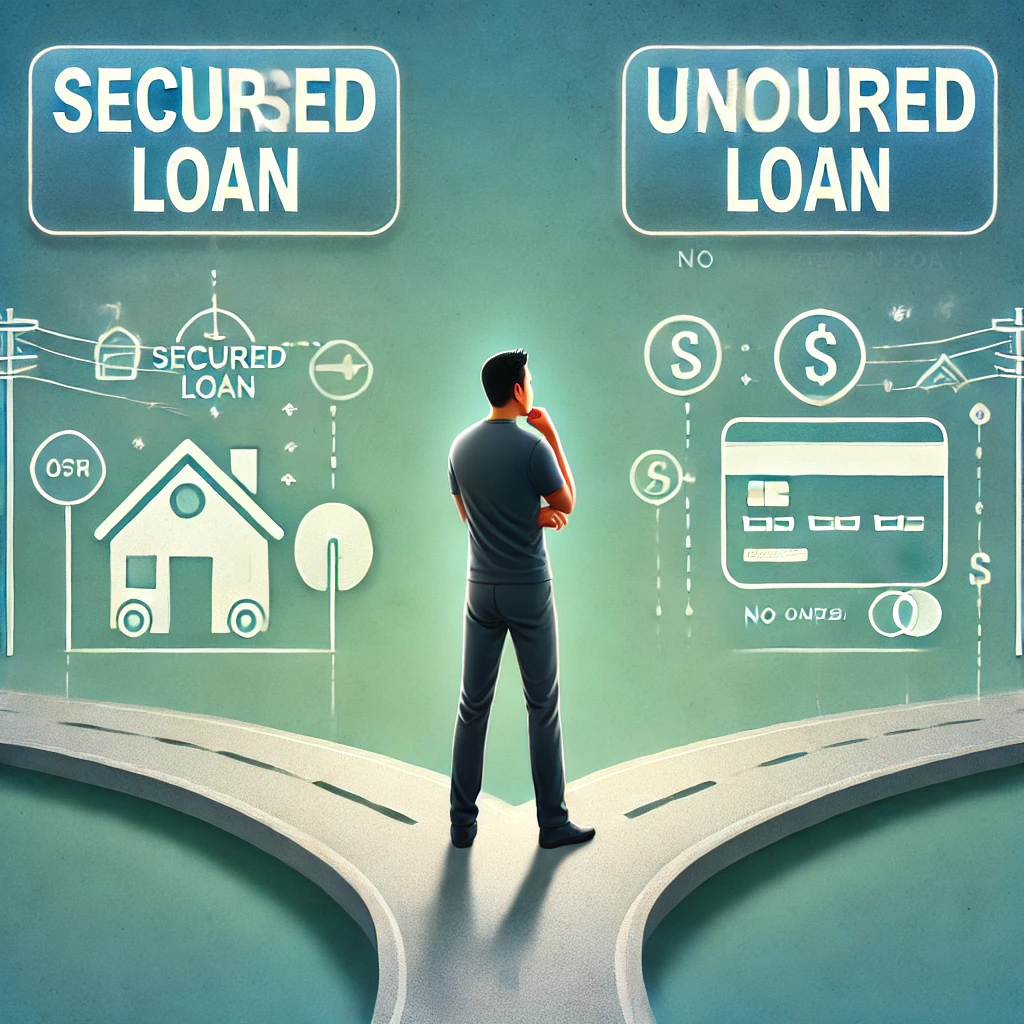Applying for a home loan with bad credit can seem daunting, but it’s not impossible. With the right strategy, careful planning, and by understanding the requirements of lenders, you can turn this dream into reality. Whether you are looking to buy your first home or upgrade, this guide will help you navigate the process of applying for a home loan with bad credit, highlighting actionable steps you can take to improve your chances of approval.
Understanding Bad Credit and Its Impact on Home Loans
Credit scores play a critical role when applying for a home loan. Lenders use these scores to assess your creditworthiness, i.e., your ability to repay the loan. A credit score below 580 is typically considered “bad credit.” While it may limit your mortgage options, it doesn’t shut the door completely on securing a home loan.
What Constitutes Bad Credit?
Bad credit refers to a history of poor financial management, marked by missed payments, high credit card balances, or defaults. The lower the score, the riskier you appear to lenders, which can result in higher interest rates or stricter loan terms.
How Bad Credit Affects Your Loan Application
When applying for a home loan with bad credit, expect to face certain challenges:
- Higher Interest Rates: Lenders charge higher rates to offset the perceived risk of lending to someone with bad credit.
- Larger Down Payments: You may be required to put down a larger sum upfront to secure the loan.
- Limited Loan Options: Some traditional mortgage options might not be available, but there are alternatives designed for those with poor credit.
How to Apply for a Home Loan with Bad Credit
Securing a home loan with bad credit requires extra effort, but it’s doable if you approach the process methodically. Here’s a step-by-step guide on how to apply for a home loan with bad credit.
1. Check and Understand Your Credit Score
The first step is understanding your credit score and how it affects your chances of getting approved. Request a free copy of your credit report from credit bureaus like Equifax, Experian, or TransUnion. By knowing your credit score, you’ll have a clearer idea of what to expect from lenders and where you need to improve.
- Action Step: If there are errors or inaccuracies on your report, dispute them immediately. Even small corrections can improve your score.
2. Improve Your Credit Score Before Applying
If your score is too low, take steps to boost it before applying for a mortgage. Here are a few strategies:
- Pay Off Debt: Focus on paying down high-interest debt to lower your credit utilization ratio.
- Make Payments on Time: Timely payments significantly affect your credit score. Consistency in paying bills helps improve your score over time.
- Limit New Credit Applications: Each credit inquiry can lower your score, so avoid opening new credit lines before applying for a home loan.
- Tip: Some lenders specialize in working with individuals who have bad credit, and improving your score just a little can make a big difference in the terms they offer.
3. Save for a Larger Down Payment
A larger down payment signals to lenders that you’re serious about repaying the loan and can help offset the risk associated with a low credit score. Aim for at least 10-20% of the home’s purchase price.
- Tip: Some government programs, such as FHA loans, require lower down payments for people with bad credit, making homeownership more accessible.
4. Explore Alternative Loan Options
If you’re struggling to qualify for a traditional mortgage due to bad credit, consider alternative loan options. These include:
- FHA Loans: The Federal Housing Administration backs loans for borrowers with credit scores as low as 500, provided you can make a 10% down payment.
- VA Loans: Available to veterans and their families, VA loans often have more flexible credit requirements and don’t require a down payment.
- USDA Loans: If you’re purchasing a home in a rural area, you might qualify for a USDA loan, which offers more lenient credit score requirements.
5. Get Pre-Approved for a Loan
A mortgage pre-approval gives you an idea of how much you can borrow and signals to sellers that you’re a serious buyer. Lenders will assess your financial situation, including your credit score, income, debt, and down payment amount.
- Tip: Getting pre-approved can also help you identify any potential hurdles early on, so you can address them before fully committing to a loan application.
6. Gather Essential Documentation
When applying for a home loan with bad credit, you’ll need to provide comprehensive documentation to convince lenders of your financial stability. These documents typically include:
- Proof of Income: Pay stubs, tax returns, and bank statements.
- Employment Verification: Lenders will want to see steady employment history.
- Debt Information: A list of all outstanding debts, including credit card balances, student loans, and car loans.
- Down Payment Information: Proof of the funds you plan to use for the down payment.
7. Consider a Co-Signer
Having a co-signer with good credit can significantly increase your chances of getting approved for a home loan. The co-signer’s credit history and income are considered in the loan application, making you appear less risky to lenders.
- Tip: While a co-signer can improve your chances, remember that they are equally responsible for the loan if you default.
Applying for an FHA Loan with Bad Credit
FHA loans are a popular option for individuals with bad credit because they have more lenient requirements compared to conventional mortgages. Here’s what you need to know if you’re considering applying for an FHA loan.
What is an FHA Loan?
An FHA loan is a mortgage insured by the Federal Housing Administration, which allows lenders to offer loans to borrowers who may not qualify for conventional financing. It’s designed to help low-to-moderate-income buyers with less-than-perfect credit.
FHA Loan Requirements
To qualify for an FHA loan with bad credit, you need:
- A minimum credit score of 500-579 with a 10% down payment or a credit score of 580+ with a 3.5% down payment.
- Proof of stable employment and income.
- A debt-to-income ratio (DTI) of 43% or lower.
- No recent bankruptcies or foreclosures (typically within the last two years).
Why FHA Loans are Ideal for Bad Credit Borrowers
FHA loans are ideal for bad credit borrowers because they offer more flexibility in terms of credit score, down payment, and debt-to-income ratio. Additionally, the interest rates on FHA loans are often lower than those for conventional loans, even for borrowers with bad credit.
You Can Also Read : How to Choose the Right Personal Loan for Your Financial Needs
How to Rebuild Your Credit for a Home Loan
If you’re not in a rush to buy a home, taking time to rebuild your credit can open up more mortgage options and save you money in the long run. Here are a few strategies to help rebuild your credit:
- Pay Off Debts Strategically: Prioritize paying down high-interest debts, especially credit cards.
- Build Positive Payment History: Make sure to pay all your bills on time each month, as payment history accounts for 35% of your credit score.
- Use Credit Monitoring Tools: Services like Credit Karma allow you to track your credit score progress and detect any errors in your report.




